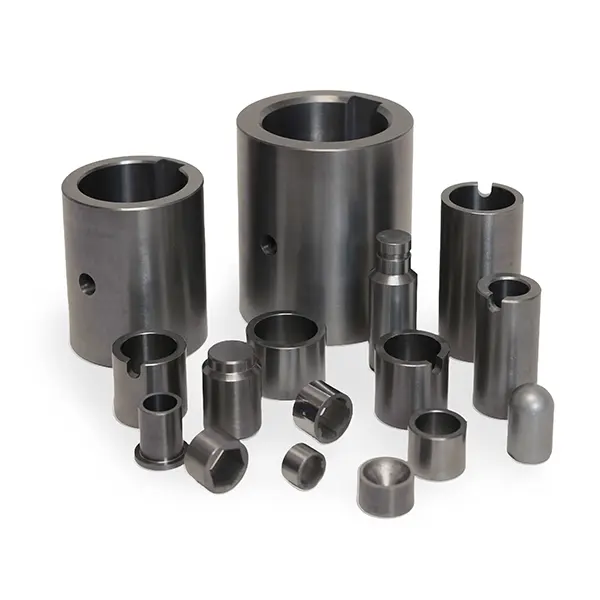Have questions before you get started?
Our team is here to provide the answers and support you need.
Tungsten carbide nickel bonded seal faces are commonly used in various industrial applications to prevent leakage between two mating surfaces. They are designed to provide exceptional wear resistance, durability, and reliability under high-pressure and high-temperature conditions.
Nickel Bonding: Nickel is commonly chosen as the bonding material due to its ability to form strong metallurgical bonds with both tungsten carbide and the metal substrate. The bonding process involves heating the components to high temperatures, causing the nickel alloy to melt and fuse the seal face to the metal surface.
The specific properties and characteristics of a nickel bonded tungsten carbide material can vary depending on the composition and manufacturing process. Typically, the tungsten carbide content can range from 70% to 94%, while the nickel content is around 6% to 30%. The balance of nickel and tungsten carbide determines the material’s hardness, wear resistance, and other mechanical properties.
The combination of tungsten carbide and nickel bonding offers several advantages for seal faces:

| Properties | Unit of Measurement | Values |
| Nickel (Ni) | % | 6 |
| Tungsten Carbide (WC) | % | 94 |
| Density | g/cm3 | 14.0-14.9 |
| Hardness | HRA | >= 88.5 |
| Compressive strength | N/mm2 | 5600 |
| Transverse rupture strength | N/mm2 | 2600 |
| Thermal conductivity | W/moK | 110 |
| Coefficient of thermal expansion | 10-6/ok | 6 |
| Max. use temperature | oC | 1500 |
Our team is here to provide the answers and support you need.
